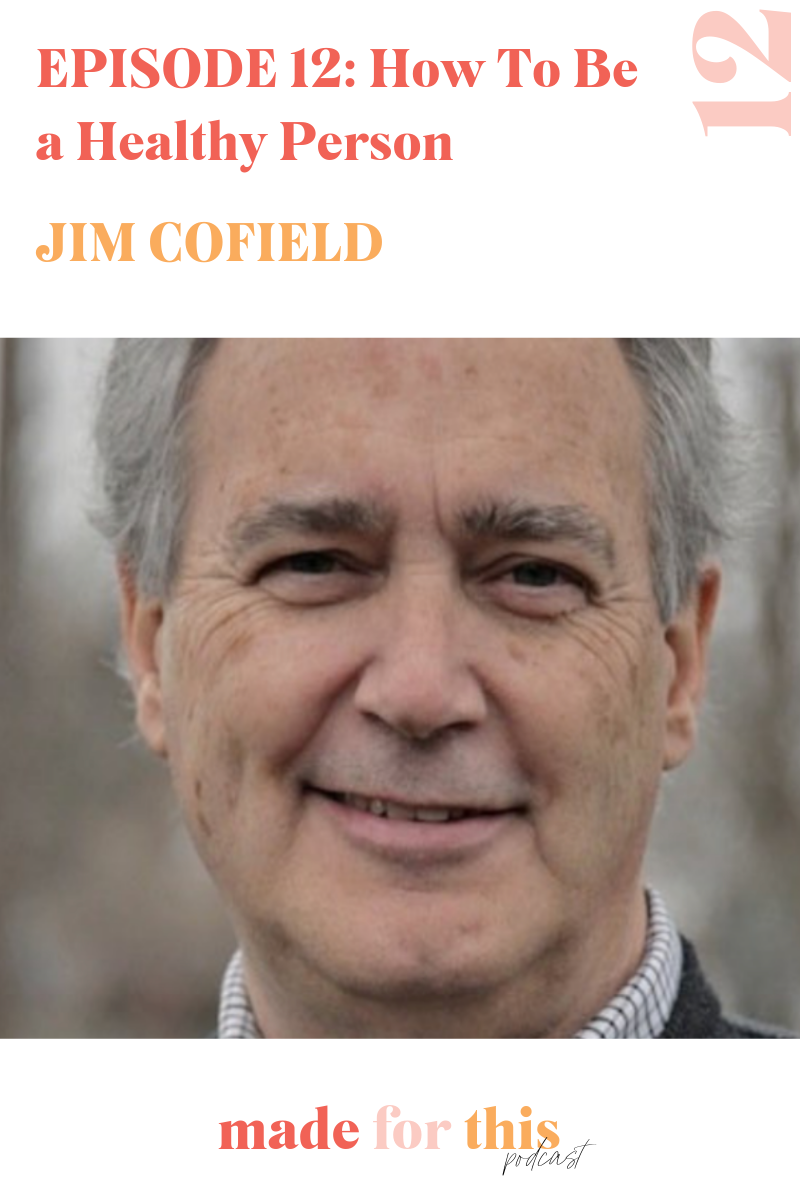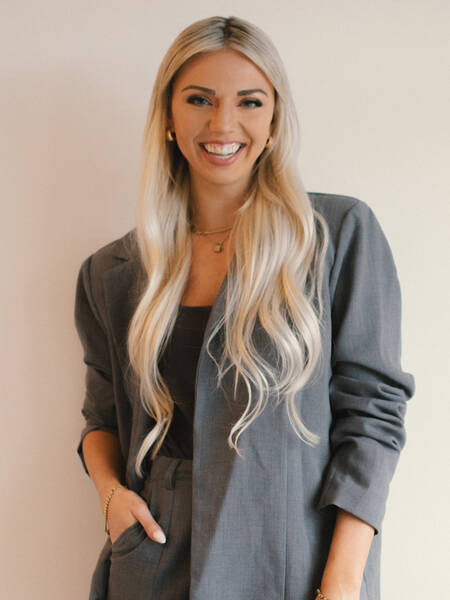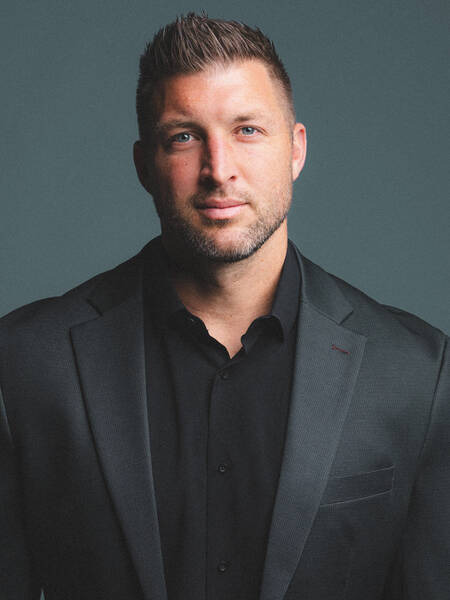How to Be a Healthy Person

July 31, 2019
Jennie Allen
Bible teacher, founder of IF:Gathering
 Listen to "Made For This with Jennie Allen" on Spreaker.
Listen to "Made For This with Jennie Allen" on Spreaker.
We all want to be the healthiest version of ourselves. We want to show up well for our friends, our spouse, our kids, and our family. But what does that mean and how do we do that? This week on the podcast I got to interview Jim Cofield. A friend of mine went to a seminar he was putting on titled "How to Be a Healthy Person" and knew we had to get him on the podcast! Jim is a pastor, author, life coach, and works with a lot of pastors on retreats. You will love what he has to say about the basics of being a healthy person, what is really happening when we walk into a room of people, what the greatest gift we can give others really is, and some practical ways to make changes today.
WHAT DOES BEING A HEALTHY PERSON MEAN?
Let's start with the basics. Jim has a robust description of what it looks like to be a healthy person. But first, what does that even mean?
"I believe we are constituted relationally. Our core reality is that we are relational beings, because we have been made in the image of the relational God - Father, Son, and Spirit. We bear that DNA in ourselves. The quality of our life depends on the quality of our relationships and there are some basic key qualities to good relationships."
I am a receptive person rather than reactive
I am more resilient than rigid
I am aware and mindful rather than unaware and emotionally clueless
I am responsible for my own life
I don't blame or take victim status
I am differentiated
I am empathetic
I am strong
I am stable
I am realistic
I don't have expectations that are unattainable
I see the world in a beautiful way and don't grow stale.
I believe God is for me
I am grateful and content
I know how to trust, hope, be humble, desire, and love well
That's quite the list. I think we could all spend awhile working through each of these and really evaluating how we're doing. Do I believe God is for me or am I believing he's sabotaging my life? Am I taking the victim status in situations where I could be taking initiative? Am I seeing the world in an imaginative and beautiful way instead of being cynical? These are great questions to ask as we bring community in and get a full picture of your health as a person. It can be scary, but it's so beneficial!
THE UNSEEN PART OF US
Jim has a great iceberg analogy about how we interact with people and our environments. So much of what we do and who we are is automatic and not consciously learned. How do we become aware of these things if we aren't aware we're learning them?
"God has created us with permeable souls. We absorb things without thinking...That's held in what is called our implicit world. We can think of the iceberg as 5%-10% above the waterline, the rest below the waterline. The waterline is consciousness. Most of who we are is held in the unseen part of who we are... We know them, but we don't think about them. The implicit world is all the things we learn about without paying attention. Our explicit world is what we learn by paying attention...A lot of me is what I've picked up without thinking. That's what affects our relational engagement."
This means that you may have picked up on toxic habits, self-destructive patterns, or unhelpful ways from your family background, past experiences, etc. without even noticing. Now before you start despairing because you've grown up in an unhealthy family or have been in toxic relationships, there's good news. There is hope to change! Just because we've picked up negative patterns doesn't mean we're without hope.
WHERE OUR DEEPEST CHANGE HAPPENS
"Our deepest change has to happen relationally. It has to happen by being in a relationship. That's why the greatest gift I can give someone is my transformed, and transforming presence. They're going to absorb who I am and it will make a difference deep within their soul. We can change. We can change by being in relationship with our Lord. By being in the presence of his virtue, his love, his character, his compassion. That's absorbed into our lives. A healthy person takes responsibility. They don't claim the victim and say, well that's just who I am and that's too bad and I'll be that way the rest of my life."
Because we are made as relational beings in the image of the Trinity, being in relationship with others is how we're made to change. We have the power to affect other people and other people have the power to affect us. That's a lofty vision for our relationships. How do we do this practically? If we're stuck in unhealthy habits, how do we change?
"One of the practical things is if my soul is absorbing the presence of someone, I ought to be in the presence of someone whose character and presence I want as mine. That's why solitude and silence, contemplative reading and prayer have had such a long history in the church. We dedicate and give ourselves over to spending time alone with the Lord in quietness with him. We read some from scripture and hear his voice and figure out what it means to me. I spend time with the Lord and spend time with others. I think that's why the New Testament makes a big deal of the new family, the family of God, and kind of hanging out with people along the journey, so they can help me and I can learn from them as to how to be a more healthy and holy person. Solitude and silence with the Lord. Community is very important. Becoming more self-aware is very important and learning what's cooking in me is very important...the more I know about me, the influence of my family, what gets me going, and then what's my game plan in light of that. So self-awareness is a critical factor when it comes to change."
WHAT HAPPENS WHEN WE WALK INTO A ROOM
We all have experienced what happens when we walk into a room of strangers, or even friends, but it's fascinating to really understand our mind, emotions, and body's reaction to this experience. A lot of what's in play in this situations depends on our past, which is why it's so important to be aware. What we're bringing into relationships has a lot to do with what we've absorbed from our families and previous experience.
"A lot is in play. And what's in play is depending a lot on family of origin. I learned my basic template for learning to relate and be around people is from my family and my personality style. Nature and nurture contribute to how I experience others to a great extent. That can change, but I need to be aware of what's going on. For example, if I grew up in a very highly authoritative household, that's going to affect the way I walk into the room and who I'm sensitive to. Anyone that sounds or feels a little bit authoritative, I'm going to feel very cautious if I have a more withdrawn personality style, or very aggressive if I'm more assertive. That will happen when I get into the room. Another thing that comes into play is my attachment pattern - whether I'm avoidant and I don't know how to trust you or I trust me but not you...The issue is, do I have some awareness of what's going on in me? Do I pay attention to my body? It helps tell me what's going on inside me, because we're embodied souls. A wise, mature person seeks to be very aware of what they're feeling when they walk into a room."
All that to say, we are complicated beings! We'd love to think that relationships are just a few steps, easy to figure out and understand, but that's not true. Every time we talk to someone, we're interacting with someone that comes from an array of experiences and sources that we don't know. We don't always have access to that information. One of the best ways to go deep with people is to tell your story and hear theirs. It gives you such a context to why they react the way they react.
THE SCRIPTS WE LIVE BY
Jim talked a lot about how we can identify the scripts or messages we're living by as we analyze our past. What events do you remember from childhood? What emotions were you feeling during that event? What message did you start telling yourself to cope in life? Our scripts can come from a whole lot of sources, and we live from them:
"our scripts are coming from our family of origin, our patterns, our personality style, experiences, physical factors, losses we've had. Good things that have gone on in life."
If we're aware of our scripts and the messages we're telling ourself, we can go before the Lord and ask him what needs to change. That is the first step in true, supernatural life change.
ASKING THE HARD QUESTIONS
Another method Jim talks about that facilitates going deep with people is asking these REALLY hard questions:
How are you experiencing me right now?
How do you see me exaggerating my gifts or underselling my gifts?
Where are you seeing me take risks for the sake of Christ?
We can get caught up in our thinking and way of doing things and we don't realize how we're coming across to people. These can be scary questions to ask, but they're so important to ask as it invites others into our world. When I asked my team the first question, I realized I was coming off as very authoritative since 1. I get passionate about things and 2. I'm their boss. They thought I wanted them to get on board with everything I was saying, but really I was just throwing ideas on the table. Being aware of that has helped the health of our team so much!
The gifts we have are from the Lord are good, but we can utilize them in harmful ways. We might be exaggerating our gifts out of proud or underselling our gifts out of fear. Your community might see a gift in you that you didn't think you had!
Taking risks for the sake of Christ is where life gets fun. When we step out in faith, surrender, and trust God, we get to watch him move in incredible ways. Asking this question could bring up a great time of encouragement for your community as you each affirm ways you've been obeying and trusting God. Or you might get to confess that you've been living for comfort, and ask them to help you take more risks.
Asking these questions is an incredibly vulnerable thing to do, but it leads to incredibly deep and authentic community. For you to be fully known and fully loved, we have to take the risk of letting others fully know us, so they can fully love us.









